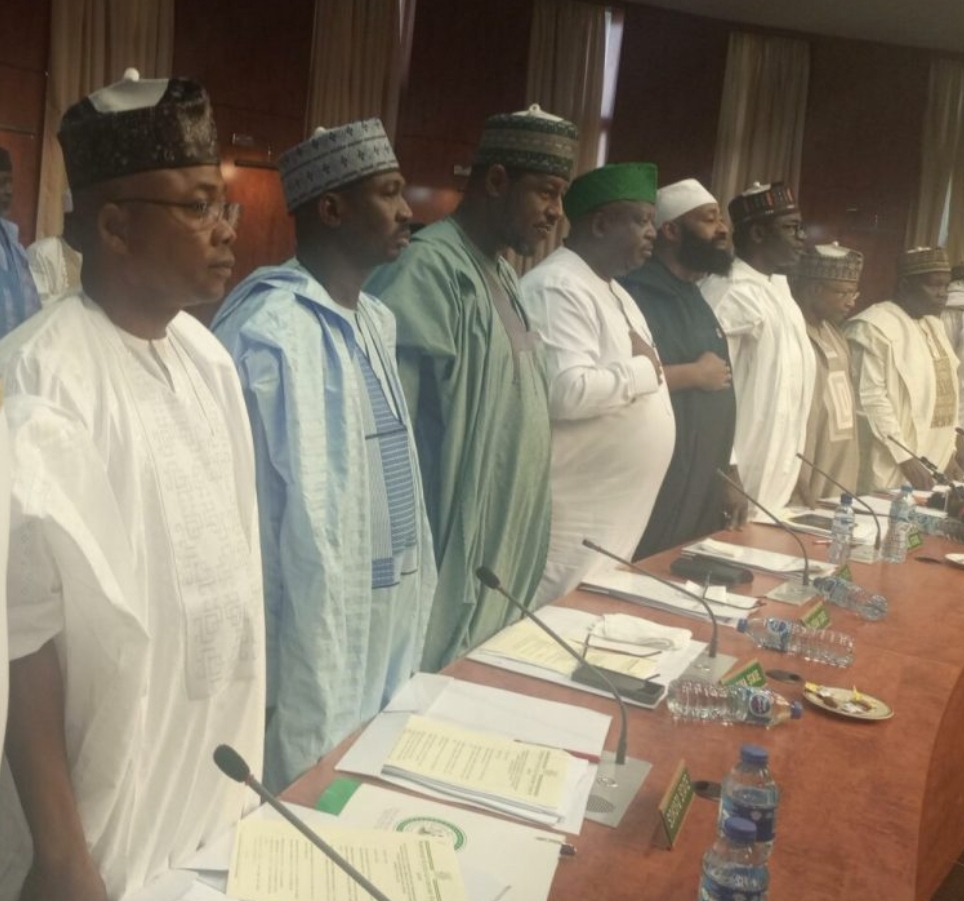I want to thank you all for the opportunity to address you on a matter of deep concern to everyone here.
The flood we have seen in Bayelsa State this season is of calamitous proportions. Rising floodwaters have slowly crept into homes and their levels have risen until whole communities have been sacked and rendered homeless. The floodwaters have taken over our farms, damaging crops as well as seeds and seedlings. Business activities have come to a standstill because shops have been soaked and goods have been damaged. Our public infrastructures have suffered too, with whole portions of critical roads washed off and made impassable.
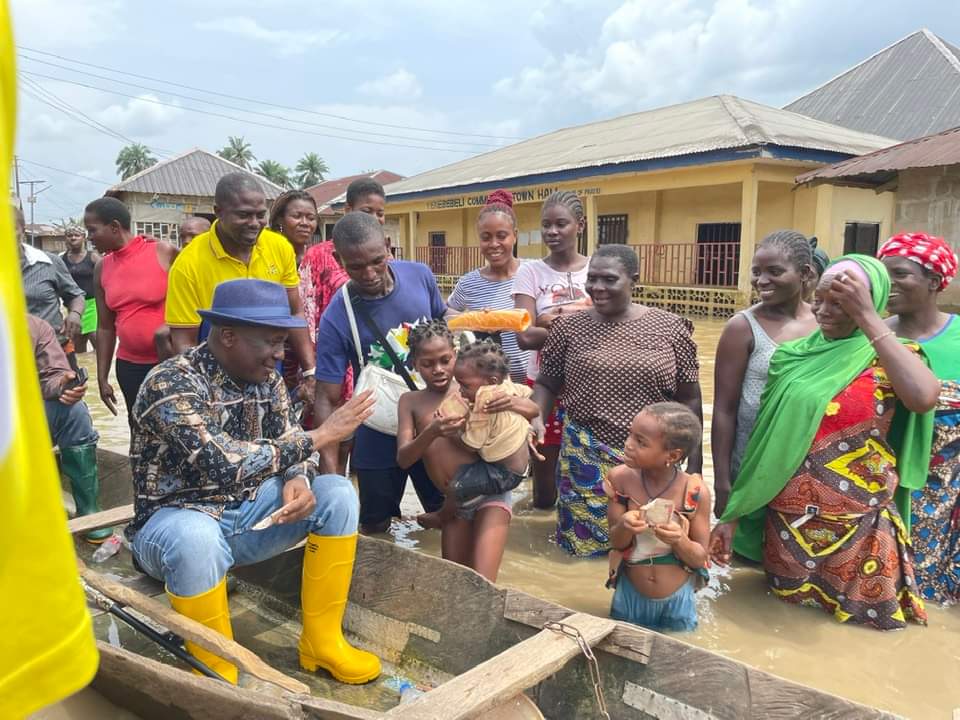
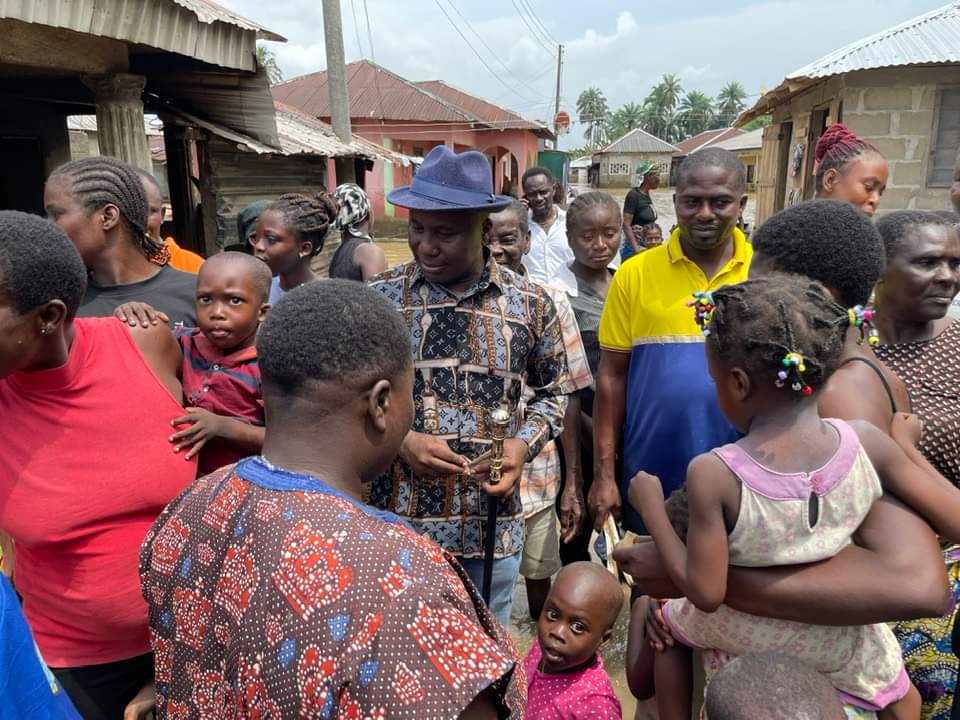
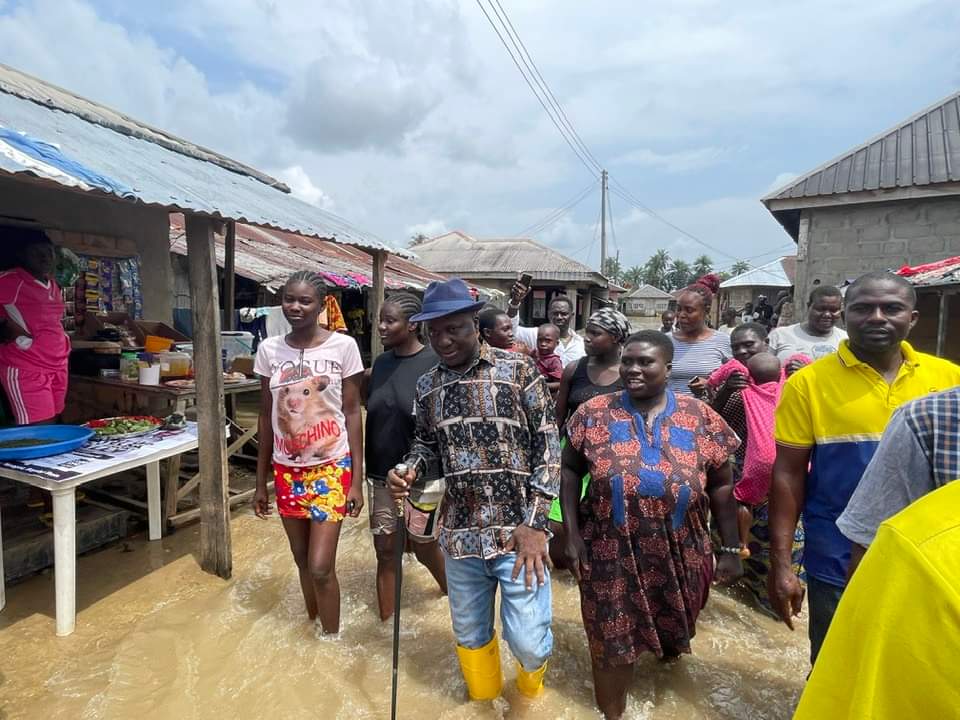
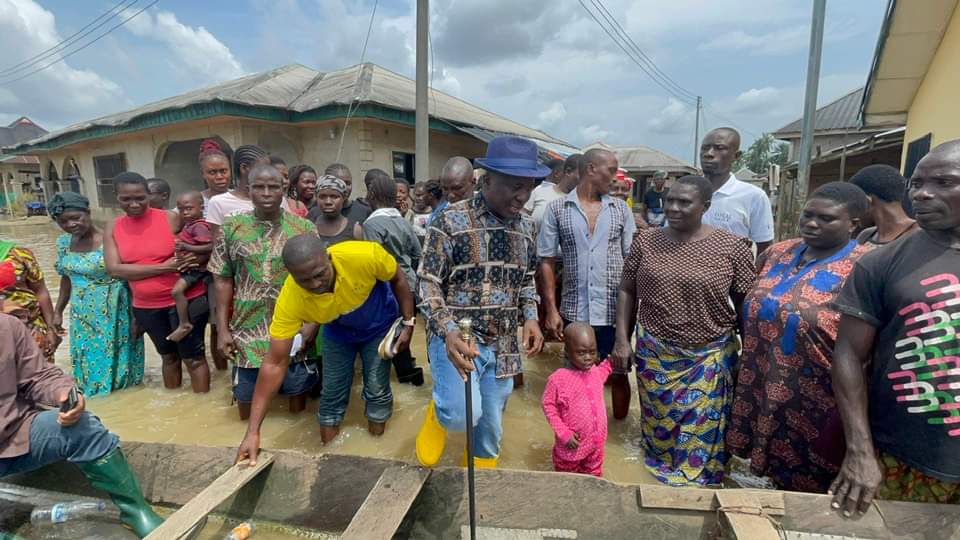
In Odi, many houses were submerged and hardly anyone could find a place to put their foot. In Kaiama, people have had to go to the secondary school compound for shelter. At Arietalin Road in Yenagoa, people could only stay in buildings at least one-storey high. Boats and canoes have become beds and kitchens as well as vehicle for transportation within our towns and villages. Even rooftops and trees have served as sleeping places. In nearly all parts of the state, people have to wade through water to get from one place to another. Roads have been cut off and no motor vehicles can travel on them.
In addition to the physical discomfort that people face, inflation has soared. A bag of rice now sells for high as N60,000 from a low N30,000. That is how the price of other food items has skyrocketed. With roads cut off, avenues for getting resupply of stock have been closed, leading to scarcity of food items. This scarcity has resulted in inflation. And the inflation is of the kind this generation has never witnessed before. Prices of goods have increased twofold whereas people’s incomes have either remained stagnant or fallen. Through our recent history, feeding ourselves has never been harder. People are starving!
We also face a health situation. The floodwaters are contaminated, and that is the water we live in and drink. Under that kind of situation, it is easy for an epidemic to break out. So, we have to be conscious of that risk and do all we can to prevent it from happening.
Thankfully, the Government of Bayelsa State has been quick and agile in its response to the crisis. Temporary shelters have been provided for persons displaced from their homes and necessities have been supplied to guarantee some minimum living standard. The Governor has taken steps to fix the damaged portions of roads. Apart from caring for flood victims, which is a measure in the short-term, the Governor has also set up a committee to take inventory of the losses caused by the flood and generate advice on what to do to minimize the consequences for the state and its residents. The government has even opened a bank account, called the “Bayelsa Flood Relief Fund”, into which donations towards the flood relief may be paid. I have made my own donation of the sum of N1,000,000 (One Million Naira). The steps taken show that we have a forward-looking government in Bayelsa.
The Governor has demonstrated real leadership. He has communicated hope to us. He has encouraged us to be our brother’s keeper. And, indeed, we have kept our brothers. Houses above the flood line have welcomed and accommodated many families far beyond the capacity of those houses in normal times. So, we must congratulate ourselves that we did not abandon our brothers; rather, we have shown love and compassion and taken care of one another. To all Bayelsans who have demonstrated this love, I say, Thank you!
Since the beginning of this flood, I have been worried about how our people would cope. I have thought deeply about what we can do to attract the attention of our national government as well as the attention of international development and donor agencies. Indeed, I even took anticipatory steps to see how we could protect our people in the best way possible.
In the aftermath of the less devastating flood of 2021, I took steps to see how we could cope better with a subsequent flood. I held a meeting with the directors of the National Emergency Management Agency (NEMA) and discussed with them measures that should be taken in the short-, medium- and long-term for addressing the challenges of flooding. I wrote to President Muhammadu Buhari, the Ecological Project Office, the Federal Ministry of Humanitarian Affairs and other agencies of government in an effort to seek proactive steps to deal with subsequent flooding. The purpose of those letters was to stir the Federal Government and its agencies into action to prepare for the flood that we have today. But, alas, the flood is here with us and we have to think up new ideas for addressing it.
With the current flood being more devastating than ever before, I have had to step up my engagement with relevant agencies to find a solution. In addition to the federal agencies I had engaged with last year, I have reached out to international donor agencies like the World Food Programme, the World Bank, the International Society of the Red Cross, and the oil companies operating within our shores. In the letter to the President, I highlighted the sufferings of our people, and advised on the need for emergency relief materials for the victims and the provision of seeds, seedlings and plant cuttings for use in the next planting season. I also advised on what may be done to avoid this level of disaster in the future.
The flood was caused by excessive rainfall and made worse by the release of water from the Lagdo Dam in the Republic of Cameroon. The World Bank has warned that floods and draughts will become both more unpredictable and more frequent as a result of climate change. This is among the issues discussed at the recently concluded annual meeting of the IMF and the World Bank Group in Washington DC, a meeting I attended in my capacity as the Vice Chairman of the international Parliamentary Network on the IMF and the World Bank. I chaired a session of the meeting and I drew the attention of everyone to the havoc the flood was wreaking in Nigeria, especially Bayelsa State.
To tackle the problems of climate change, the World Bank Group has committed about $70 billion. As a country, we can access this fund.
From what I have seen while going round the state, I can say without fear of contradiction that this flood is unprecedented in its magnitude and is worst in our history. I therefore join the Governor and my colleagues in the Bayelsa State Caucus of the National Assembly to call on the Federal Government to declare Bayelsa State flood disaster zone. I equally call on the National Assembly to demonstrate solidarity with the people of the State by taking every step necessary to help the people.
As a people, we must be determined to minimize the losses we incur during floods. We have to find a way to strengthen ourselves to be able to stand firm together in the face of changes in our environment. If we must avoid the human cost and the economic destruction this flood has inflicted on us, we must devise a way to a brighter tomorrow.
First, we must strengthen the institutions set up to manage disasters and emergencies, such as the National Emergency Management Agency and the state counterparts. They must have access to relief materials in enough quantities to meet the kind of emergency we have faced with this flood. They must be able to collaborate with relevant agencies to develop early warning systems and make adequate plans on how to meet imminent natural disasters.
Second, we should build in each local government area structures that can serve as civic centres in normal times and serve as temporary shelter for victims of natural disasters like the flood.
Third, the Federal Government must as a matter of urgency commence the building of a dam to contain the waters released from the Lagdo Dam in Cameroon. The dam we build would not only help to reduce the volume of water flowing downstream and thereby reduce the impact of flooding, but it would also benefit our country in terms of electric power generation and irrigation of surrounding farmlands.
As we take steps to confront the challenges posed by the flood, we must be united in hope. We must strengthen ourselves with the confidence that we shall overcome.
Thank you all.









